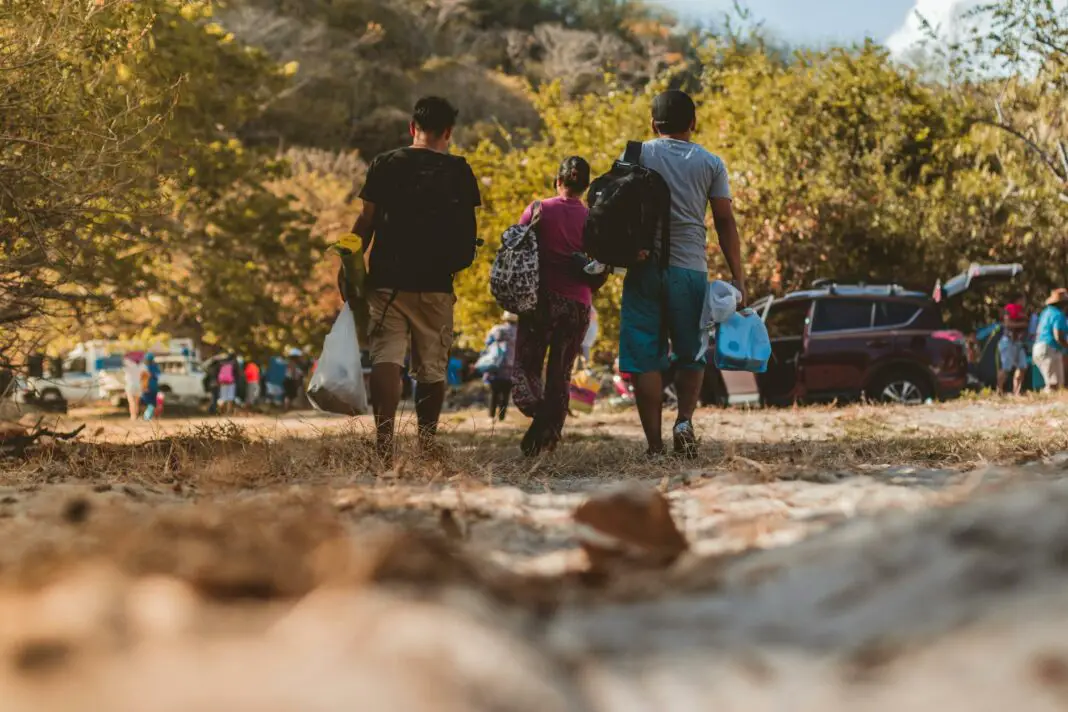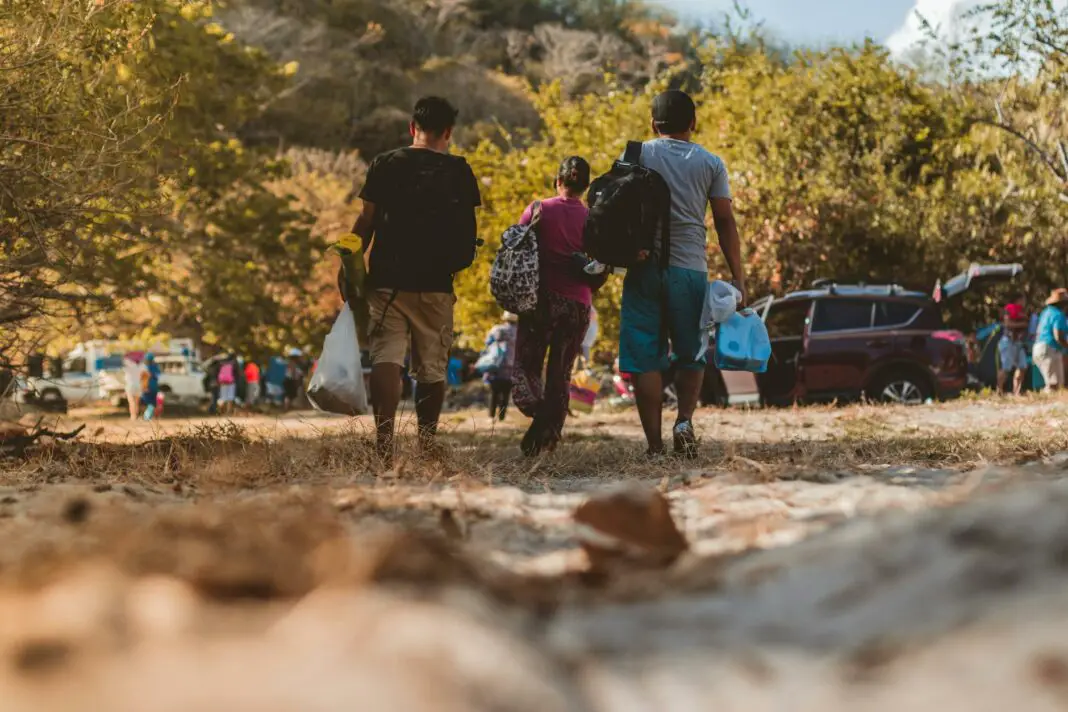Discovering the allure of Thailand’s wilderness is not just about breathtaking landscapes and majestic wildlife; it also revolves around embracing sustainable travel practices that protect the environment while enriching your travel experience. This blog post dives deep into various eco-friendly adventures awaiting you in Thailand, where every step you take contributes to the preservation of nature. From serene natural parks to vibrant marine sanctuaries, you have the opportunity to engage with the beauty of Thailand in an environmentally conscious manner.
Whether you’re a nature enthusiast, an adrenaline junkie, or a culture seeker, Thailand offers a plethora of eco-friendly activities that allow you to immerse yourself in its stunning flora and fauna. Get ready to explore adventure tours that are sustainable and meaningful, ensuring that your travels leave a positive impact on local communities.
Table of Contents
- Exploring Nature Parks
- Participating in Eco-Tours
- Visiting Wildlife Sanctuaries
- Engaging in Marine Conservation Activities
- Staying in Eco-Friendly Accommodations
- Experiencing Local Culture and Traditions
- Embrace Your Adventure Responsibly
Exploring Nature Parks
Thailand is adorned with an array of pristine national parks, each showcasing unique ecosystems and diverse wildlife. To start, Khao Sok National Park offers an enchanting experience. Picture yourself cruising through emerald waters of Cheow Lan Lake, framed by towering limestone cliffs and lush rainforest. Hiking trails winding through the park reveal hidden waterfalls and vibrant wildlife, including playful gibbons and majestic elephants. Engaging in guided tours conducted by local experts enriches your experience while ensuring responsible interaction with nature.
Additionally, Doi Inthanon National Park, the highest peak in Thailand, promises breathtaking views and rich biodiversity. You can wander through flower gardens adorned with native plants, marvel at the majestic waterfalls, and hike through nature trails that lead to stunning viewpoints. Opting for responsible hiking tours not only enhances your adventure but also contributes to conservation efforts, making your exploration a blend of thrill and sustainability.
Participating in Eco-Tours
Diving into the world of eco-tours presents a unique way to connect with Thailand’s splendid nature while respecting its environment. These tours often include activities like birdwatching, trekking, and cultural exchanges that foster a deeper understanding of Thailand’s ecological treasures. For instance, in Chiang Mai, certain tour operators offer immersive experiences that allow travelers to participate in reforestation projects while observing local wildlife in its natural habitat.
A standout option in the southern region is the Eco Island Tour, which highlights responsible marine tourism. Imagine kayaking in small groups to distant islands, snorkeling among vibrant coral reefs, and learning about marine conservation efforts from knowledgeable guides. Such experiences not only promote eco-conscious tourism but also ensure that your adventures benefit local communities and ecosystems.
Visiting Wildlife Sanctuaries
When discussing eco-friendly adventures, the visit to wildlife sanctuaries must take center stage. Thailand shelters numerous sanctuaries dedicated to rescuing and rehabilitating endangered species. For example, the Elephant Nature Park in Chiang Mai offers visitors a chance to interact with elephants in a way that emphasizes their well-being and natural behaviors. Here, you can feed and bathe the elephants while learning about the importance of proper care and conservation. This experience supports a sanctuary that reinvests funds into wildlife protection programs.
Alternatively, the Khao Kheow Open Zoo and the Samutprakarn Crocodile Farm give a glimpse into responsible zoo practices that emphasize education and conservation. Engaging with such establishments encourages a better understanding of wildlife preservation and the urgent need for conservation efforts.
Engaging in Marine Conservation Activities
With its enviable coastline and vibrant marine life, Thailand isn’t just a paradise for beach lovers—it’s a hub for marine conservation. Programs like coral planting and beach cleanups invite you to take an active role in preserving the underwater ecosystems. Joining these initiatives allows you to experience firsthand the beauty beneath the waves while ensuring its protection for future generations.
For instance, in Koh Tao, numerous dive shops offer eco-diving certifications where divers can learn about marine thermal reefs and participate in reef restoration projects. This hands-on experience connects you with local conservationists and empowers you to contribute tangibly to environmental protection.
Staying in Eco-Friendly Accommodations
As eco-conscious travelers, selecting eco-friendly accommodations can significantly enhance your Thailand adventure. Numerous lodgings throughout the country prioritize sustainability, promising a minimal impact on the environment and supporting local communities. For example, eco-bungalows along the pristine beaches of Koh Lipe offer a perfect blend of comfort and sustainability, featuring solar energy and composting toilets.
Moreover, many eco-lodges offer locally sourced meals that not only tantalize your taste buds but also promote sustainable farming practices. By choosing these types of accommodations, your stay becomes a part of the solution, helping to protect the natural beauty while giving back to the community you enjoy.
Experiencing Local Culture and Traditions
Immersing yourself in Thailand’s local culture enhances your eco-adventure while ensuring respect for its traditions and lifestyles. Numerous communities engage in sustainable practices that you can experience directly, such as traditional rice farming or handicraft workshops. These unique cultural experiences foster a deeper appreciation for the land while supporting local artisans.
You can participate in cooking classes that utilize locally sourced organic ingredients or even engage in homestays that emphasize sustainable living practices. By choosing to interact with local cultures in fair and ethical ways, you not only enrich your travel journey but also ensure that your visit has a lasting impact.
Take the Leap for a Responsible Adventure
Your journey into Thailand’s wilderness provides an open door to an eco-friendly experience that goes beyond traditional tourism. By choosing sustainable activities, accommodations, and cultural interactions, you contribute to the conservation of this beautiful country, ensuring future generations can experience its wonders just as you did. Empower yourself to make decisions that honor both the environment and the communities you visit. Embrace the adventure of a lifetime while making responsible choices that foster harmony between humans and nature.
FAQs
What are the best eco-friendly activities to do in Thailand?
The top eco-friendly activities include exploring nature parks like Khao Sok, participating in eco-tours, visiting wildlife sanctuaries such as Elephant Nature Park, engaging in marine conservation efforts, and staying at eco-friendly inns.
How can I find sustainable travel options in Thailand?
You can scout for sustainable travel options by researching eco-friendly tour operators, reading reviews on eco-lodges, and utilizing local resources that promote responsible tourism.
Is it ethical to visit wildlife sanctuaries in Thailand?
Visiting wildlife sanctuaries can be ethical if they prioritize animal welfare, support conservation efforts, and promote educational outreach. Always ensure the sanctuary follows accredited practices for animal care.
What should I do to ensure my trip is environmentally conscious?
To guarantee an environmentally conscious trip, choose sustainable transportation, minimize waste, respect local cultures, support local economies, and participate in conservation activities during your travels.
Can I make a difference in local communities while traveling?
Absolutely! Being mindful of where you spend your money, participating in community workshops, and supporting local artisans can all contribute positively to the welfare of the community.
Image Credit: Pexels





